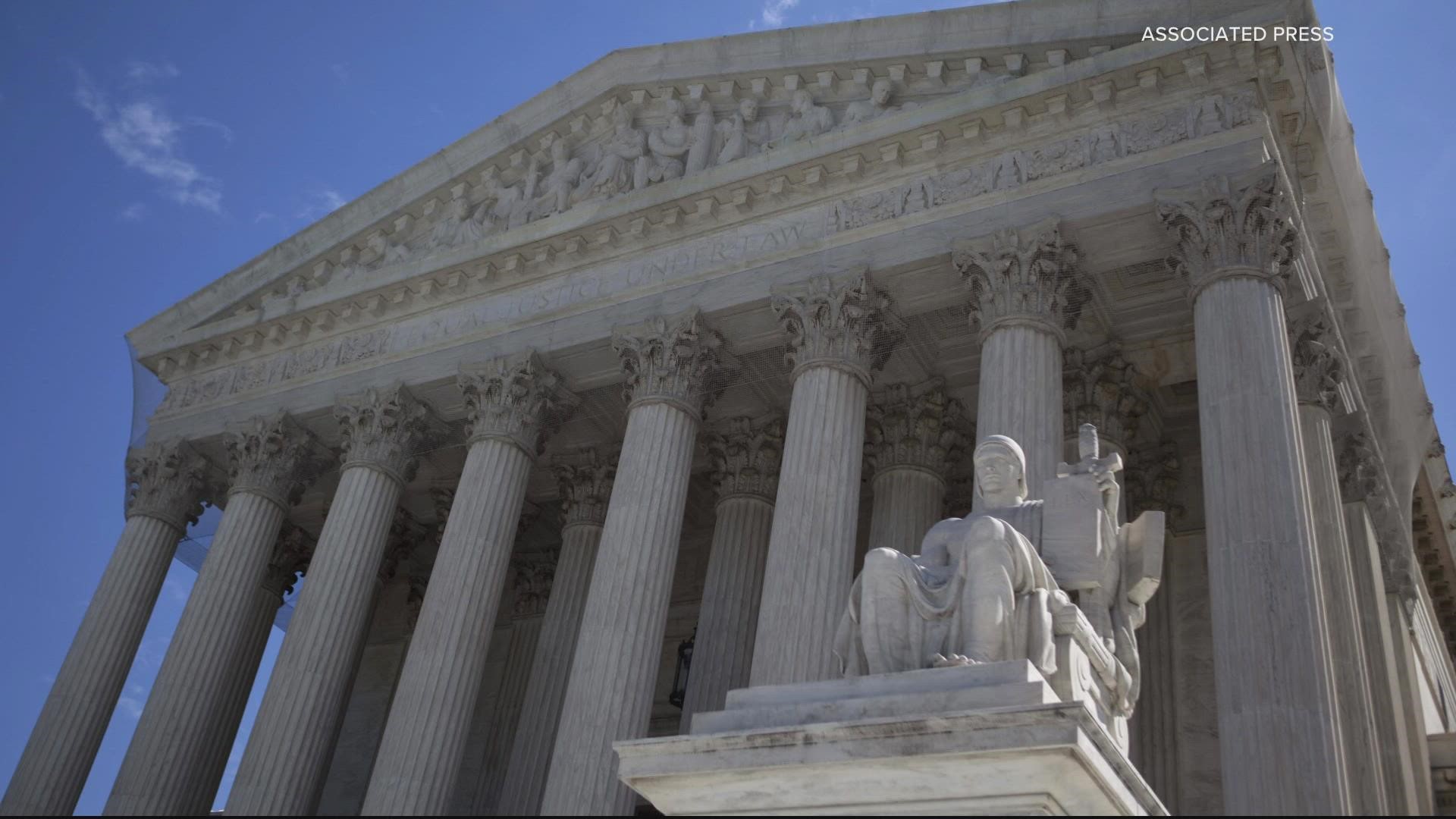WASHINGTON — EDITOR’S NOTE: The U.S. Supreme Court has now effectively overturned Roe v. Wade in a June 24 opinion. This story was originally published May 12, 2022. The information in this story is based on the draft opinion leaked to Politico in May.
On Monday, Politico released a draft of Supreme Court Justice Samuel Alito's apparent majority opinion overturning Roe v. Wade, the landmark case that legalized abortion in 1973. Chief Justice John Roberts confirmed the authenticity of the draft Tuesday afternoon.
The basis for Roe, as well as a number of other cases, are built on the idea of a constitutionally provided right to privacy, implied by the 14th Amendment's protection of the right to life, liberty and property and due process clause.
But in his leaked draft, Alito said the Court was wrong back then to claim the right to an abortion is implied in the constitution. Some experts say his wording leaves the door open for a reevaluation of other major right-to-privacy cases.
THE QUESTION
Which other Supreme Court decisions rest on implied rights similar to Roe v Wade?
OUR SOURCES
- Robert Peck, Constitutional Law Expert with the Center for Constitutional Litigation
- Caroline Fredrickson, Professor of Law at Georgetown University
- Monica Hopkins, Executive Director of ACLU DC
WHAT WE FOUND
A key point in Alito's opinion draft is that the right to access an abortion is not an implied constitutional right because it "is not deeply rooted in the Nation's history and traditions." Robert Peck said this justification opens up a debate of implied rights in a historical context.
"There's an interesting philosophical decision that's embodied in this opinion, and that is, to what extent are rights implied by the constitution," Peck said. "The question then becomes, is there a basis to say that there is an implied right that allows for abortion? And Alito says that, no, under the common law, under our history, abortion was always illegal, so there's no way to do it. Now, that's a narrow approach to liberty."
Some justices in the past believe that implied rights evolve as the country and world evolves, Peck explained. For example, the freedoms of speech and press were written in the context of the right to use a printing press. Now, those rights have evolved to imply the freedom of speech the way we all connect today: on the internet.
Over the last several decades, the implied right to privacy and due process have been the basis of a number of important Supreme Court decisions, including: Obergefell v. Hodges, the case that legalized gay marriage in 2015; Loving v. Virginia, the case that legalized interracial marriage in 1967; and Lawrence v. Texas, which made same-sex sexual activity legal in 2003.
In Peck's eyes, this Alito draft does not necessarily open the door for those cases to be overturned, but it lays out a roadmap for using similar logic for states to go after those decisions, should they so choose.
"While the opinion does not completely eviscerate the right of privacy, it does suggest that it is not as expansive as prior precedent has treated it," Peck explained. "It basically is an invitation to those who oppose those decisions to come back to the Supreme Court, frame your arguments the same way the opinion, in this case, was framed, and then see if you can get the same result."
Alito stops short of stating this outright, though. In his draft, he argues the abortion issue is “critically different from any other right that this court has held to fall within the Fourteenth Amendment’s protection of liberty.”
If the majority opinion in Dobbs v. Jackson Women's Health Organization comes down as this draft is written, it won't be the first time the court has broken precedent. However, Hopkins explained, it is a shift in the opposite direction from what we're used to seeing.
"The Supreme Court has, in the past, reversed precedent and reversed course, but in most of those cases, it has been to expand or uphold individual rights," Hopkins said. "Here...it would be one of the first times that they would overturn precedent that would strip constitutional rights from individuals."
The official opinion in Dobbs v. Jackson Women's Health Organization is expected to be released before the end of the session in June.

